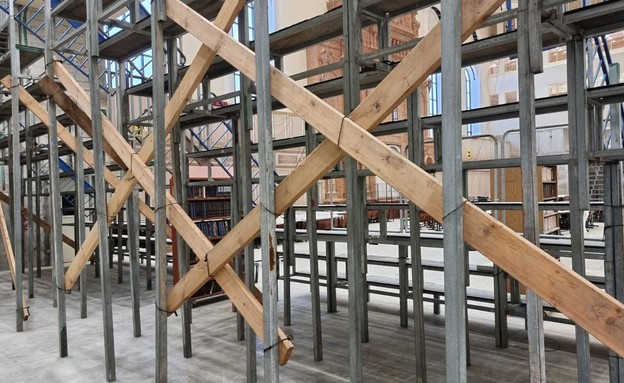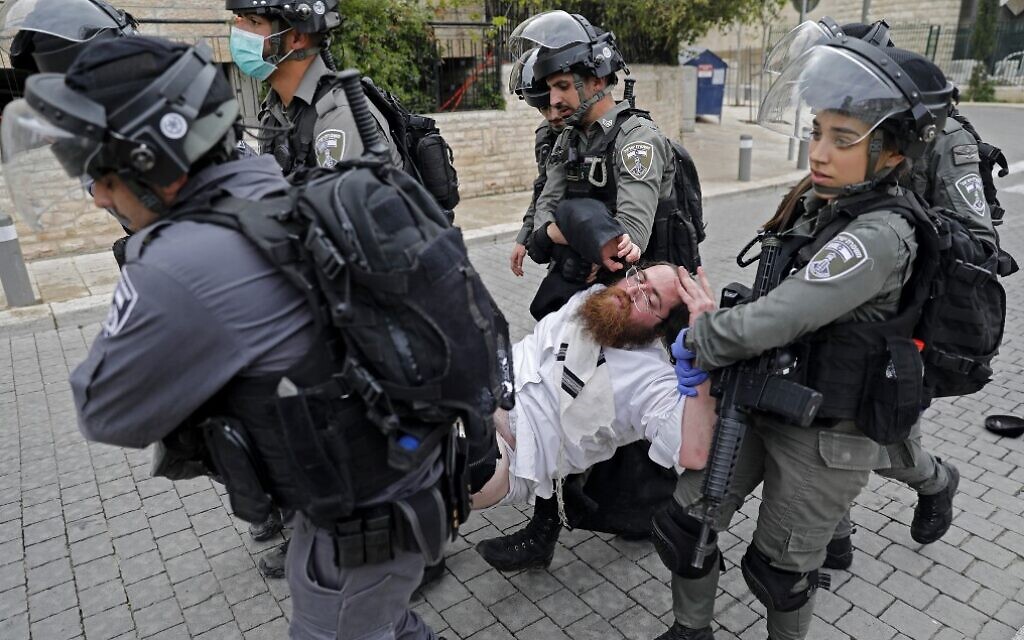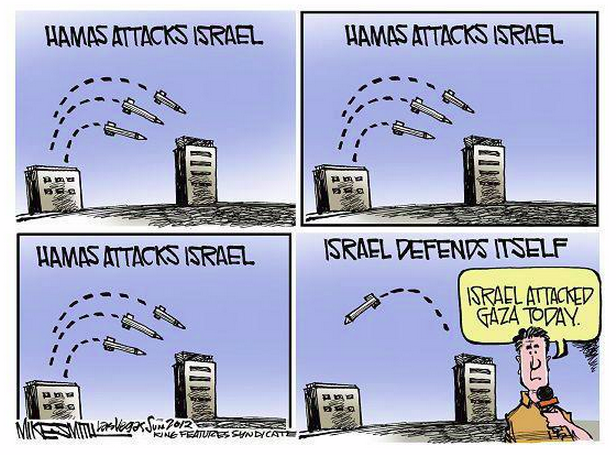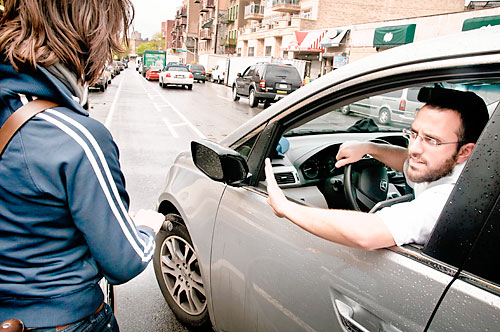It's now been a week since the worst civilian disaster in the history of the State of Israel. Initially, there were rumors being spread about the police having blockaded people and thereby causing the tragedies. Video and eyewitness evidence has since largely seemed to refute these claims, but even if there was police negligence, it's become clear that this would at most have been only a proximate cause. There is an overwhelming body of evidence, along with the scientific study of such human crushes, clearly demonstrating that the entire site was a disaster waiting to happen. All it takes is one person falling in order to create a pileup that results in a huge loss of life. Such loss of life could easily have happened at any point over the last twenty years, as numerous people kept warning over the years.

In which ways was Meron a disaster waiting to happen? Because it was a site that was suited to a few thousand people at most, certainly not a hundred thousand. The most dangerous part - the narrow, slippery access ramp where the tragedy happened - was built illegally in order to create a "mehadrin" route without women (leading some to observe that Rav Chaim Kanievsky was indeed correct that the tragedy was linked to modesty - just in the exact opposite way to how he understood it).
So how, in a developed country, where no other group would be able to arrange an annual event of such reckless magnitude with such fundamental violations of safety codes, was this able to happen?
Rabbi Pini Dunner has publicly named the five people with immediate responsibility for the Meron site and its basic deficiencies: Rabbi Avrohom Frohlich, Rabbi Mordechai Dov Hacohen Kaplan, Rabbi Dovid Derli, and Rabbi Matityahu Shrem, who run the four hekdeshos that control the site, and are supported by a senior haredi government official: Rabbi Yosef
Shvinger, director of the National Center for Holy Places in Israel and a
close confidant of Rabbi Aryeh Deri. Together, they fought any attempt to have the government take over the site and implement the fundamental structural upgrades that the State Comptroller's office was calling for. Why? Presumably, for reasons relating either to power or money.
But how do these five people manage to pull off such a thing? How did they manage to defy the State enforcement of standards that are applied everywhere else?
The answer is that they did not work alone. It was quite easy for others to be recruited to this cause. There are the chassidic sects which want to have power and control over parts of the operation. There are people with massive financial interests - government subsidies for the event which, directed by the non-government agencies involved in running the site and event, result in fat contracts for refreshments, buses and so on.
There are also the "Gedolim" of the various streams of the charedi world, who are easy to recruit into signing a campaign against secular takeover of a Holy Site. This is because (and I'm being charitable) they don't have a clue about the real issues involved, they don't understand the need for professional governance and expertise, and they have an ideological opposition to being subject to the State.
Then there are charedi politicians who want to cater to all these constituents. And so even though some of them tried hard to make the event safer in various ways, they weren't willing to do the job properly, which would have meant going all the way and fighting their constituents for the basic need to have the government take over the entire operation. (And they have since falsely claimed that they did indeed want a government takeover, refusing to acknowledge that the charedi rabbinic establishment was, across the board, opposed to this.)
All this has been coming out in the press in a steady stream of revelations. How is the charedi world reacting? There are a few different types of responses.
There are many who immediately adopt the typical charedi siege mentality. They blame the police and the government; some accuse them of being negligent, while others claim that there was a secret conspiracy by the police to kill charedim! And they attack whoever is trying to identify the real causes of the long-standing fiasco as being "out to get the charedim."
Similar to these are all the rabbinic leaders and public apologists who piously describe the tragedy as a Divine Decree, either unknowable in cause or resulting from standard sins such as neglect of Torah and sinas chinam, in order to avoid focusing on the human negligence and culpability (which would lead back to their own camp). Likewise are those who try to manipulate the tragedy of the event to avoid anyone looking for the cause; as one journalist observed, "Now is not the time to point fingers of blame, say those who are to blame!"
These public figures lead many naive common folk in the charedi world in their wake. They condition them to avoid ever holding those who wield power in their communities accountable for how they exercise that power. It's a very effective strategy for holding on to power.
But there are some charedim who acknowledge the clear facts of the
situation and its connection to systemic problems in charedi society. Rabbi Yehoshua Pfeffer, the founding
editor of the journal Tzarich Iyun, speaking to non-Jewish audiences, spoke about the issue of autonomy. He
stated that "It's a call for rethinking what is it that we didn't do right. It's not about the leadership. It's
about us as a community, as a society, because it's the underlying
opinions, the prevailing mindset of the society, that is going to be
reflected by the leadership." (Of course, this is also effectively a statement about the leadership.) He also
observed that “Haredim
don’t want to lose autonomy, but becoming big by definition means being
much more involved, much more integrated, and handing over a certain
degree of autonomy. That is something that Haredi
society hasn’t quite come to terms with.”
Others in the community are also speaking up. Charedi journalist Avi Mimran states: "The charedi mainstream needs to unite and stand up against the extremists, due to whom it is forbidden to touch a rickety fence in Meron. Because of fears of their demonstrations and violence in all sorts of other areas, we are entering into fear and leadership paralysis. When an extremist young man calls a policeman 'Nazi', as we saw in Meron, we, the silent majority, say nothing. We need to stop being afraid of some children making noise, and stop allowing them to control the charedi street. We have to go up with an excavator on the entire Meron area, to uproot all the caravans, the amutot, hospitalities, charity collectors and hekdeshos. With all due respect to those who have held all kinds of territory for centuries, this area has become a national site, and it is impossible to manage it when no fence is allowed to be touched.... And I also mean politicians, activists and all sorts of bodies with a lot of interests, who have deep hands in this plate, and who for years prevented the regulation of this place. They too have an indirect responsibility, in all the pressures they exert every year to that no stone in Meron is touched. And those are the first who, right now, have dug into all kinds of caves and disappeared."
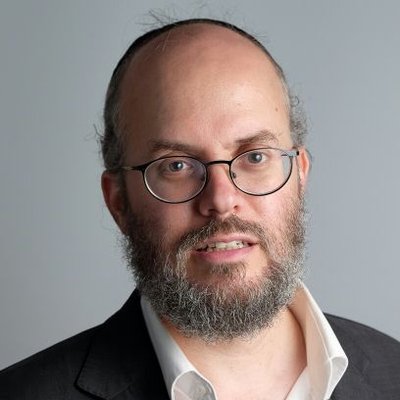
Rabbi Betzalel Cohen, a revolutionary charedi school principal in Jerusalem,
observes how it fits into a larger pattern: "I find similarities between the disaster in Meron and the conduct in Corona... both stem from the same worldview. The charedi public is a champion when it comes to helping those who are in trouble, but is far behind when it comes to preventing safety, health or economic distress... We hear the words of rabbis in the style of 'God takes the best, and it is a Divine Decree.' I understand that it is comforting, but when I hear these things, I explode. In order to to prevent the next disaster, we need to distinguish between an Act of God and an act of man."
Dr. Yehuda Sabiner, a Gerrer Chassid from Bnei Brak (I'm not sure how he managed to become a doctor), addresses the issue of authority and professional expertise: "We, the charedim, need to improve in terms of discipline versus authority. There are people in the country who make the decisions and bear responsibility, and we need to know how to accept that... In the end, ultra-Orthodox society craves order, organization and responsibility; but this is not always reflected by its representatives, who for their part are enslaved to sources of power and egocentric interests. The most important is the subject of professional hierarchy. Just as there is a Rabbi who paskens on purity and impurity, and a Dayan who rules in laws of monetary matters, each an expert in his field, so you have to transform the charedi mindset and recognize the 'rabbis' of medicine, security, and so on; to respect the authority of knowledge."
And so there are people in the charedi world who understand what caused the tragedy and what needs to change. One can only hope that they are sufficient in numbers and influence to make a difference.
If you'd like to subscribe to this blog via email, use the form on the right of the page, or send me an email and I will add you.
